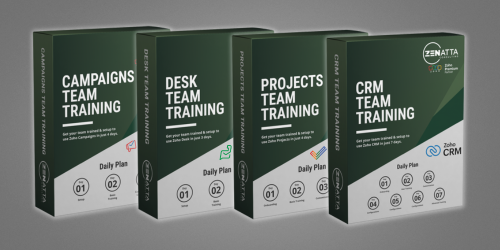To survive and grow, every size business should consider a cohesive and comprehensive set of standard operating procedures (SOPs). SOPs are defined processes or steps to accomplish certain goals within categories of operations that are vital to the company’s survival. With the right SOPs and tools to facilitate them, business leaders can delegate effectively, cut waste and automate some processes. Although there is no limit to how many SOPs a business can have, these six can help create a good foundation.
1. Product, Service, or Inventory Planning
Depending on how your business operates, one or more of these categories applies. For example, if you create your own candles to sell, inventory planning and product planning apply since you need supplies to create them. However, if you purchase complete pieces of merchandise from suppliers to resell, you can focus on inventory planning.
Product Planning
Product planning SOPs are important to help streamline development, launch, and delivery phases of products. You can develop separate SOPs for each phase. These are some additional reasons to use product planning SOPs:
- Make development or ideation processes for new concepts clearer.
- Thorough, organized research processes help companies select the right ideas to focus on for development.
- Design and development processes become more efficient.
- Improve testing or quality control procedures.
- Make launch-related tasks, such as updating website information or marketing plans, easier to execute correctly.
- Optimize product delivery, feedback, and improvement processes.
Service Planning
Like product planning, service planning SOPs make development, launch, and delivery smoother. Perhaps you run a pest control business and have a new form of pest control to offer. For any type of service-based business, these are a few reasons why developing service planning SOPs is important:
- Clear processes make ideation and feasibility research more effective for new service development.
- There are specific steps for the processes of different services.
- Employee roles and tasks are all clearly defined for different services.
- Customized training materials for different services minimize mistake risks and increase efficiency.
Inventory Planning
Usually, inventory management is important for both service-based and product-based businesses. Whether you need supplies to make your own products, or you offer a vital service, your inventory management SOP must address your company’s specific needs. These are some reasons why inventory management SOPs are important:
- Thorough merchandise research processes lead to improved inventory planning.
- Inventory management procedures, such as FIFO or perpetual procedures, are easier to understand.
- Every employee or management role related to inventory tracking, reporting, or ordering is clear.
- Analysis processes that address demand, trends, and other important factors make maintaining inventory more efficient in terms of time and money.
2. Employee Onboarding and Offboarding
When employees know exactly what you expect from them, they can work more confidently and productively. Good employee onboarding or offboarding SOPs reduce unnecessary communications and cut down on wasted time. Also, clear procedures make an employee’s or a contractor’s exit smoother for the individual and HR. These are some reasons why good onboarding SOPs are important:
- Since there are clear definitions of roles and duties, employees or contractors understand them better.
- Employees or contractors can learn important information with a welcome packet and other forms of structured orientation.
- For interviews, screening is easier with organized checklists, questions, and procedures.
- Processes for checking in with new hires and collecting feedback can help reduce attrition rates.
- Structured processes and procedures for new employees make it easier for them to access digital tools for their jobs, learn tasks, and more.
If your company works with contractors or offers temporary roles, thorough offboarding SOPs are beneficial. An offboarding SOP may address processes for turning in equipment, updating software system permissions, and similar tasks. It may help protect the company’s information, property, and other interests.
3. Client Onboarding and Offboarding
Two important reasons to have defined and clear SOPs for client onboarding are creating scope boundaries and showing the client a clear plan of action. Also, SOPs may cut unnecessary communications or prevent some misunderstandings.
Offboarding may not be as big of an issue to some businesses as it is to others. For instance, if you run a business where you sell products that you want people to buy repeatedly, offboarding is not part of your plan. However, if your business offers training courses with a clear beginning and completion times, offboarding is something you must address. These are some reasons why onboarding or offboarding SOPs are helpful:
- Processes with welcome packets, starter kits, or other useful materials meet client needs and can help them feel valued.
- There is less confusion surrounding any contracts, agreements, or disclosure forms.
- Clients have a clearer understanding of time limits, service limits, and more.
- Timelines, outcomes, costs, and other important information are easier for clients to understand with structured procedures.
- Communication procedures ensure that clients stay informed.
4. Customer Service and Feedback
As you plan your customer service and feedback SOPs, be sure that they align with any relevant goals or procedures in client onboarding and offboarding. Ultimately, one top goal of your customer service SOPs is to minimize unnecessary communications. It helps cut wasted time for you, your employees, and your customers. Be sure to consider feedback from your website, social media pages, and third-party sites as you develop or change your SOPs. These are some reasons why they are important:
- There are specific guidelines for answering questions about digital security, shipping, manufacturing, suppliers, product safety, and other common topics.
- Customers can see clear policies for payments, refunds, or exchanges.
- Organized processes make it easier to collect valuable feedback at different points of the buying cycle.
- There are clear instructions for roles in CRM tasks, such as replying to customer emails, checking in with new customers, and more.
5. Marketing Activities
To be successful, your marketing activities must be both effective and efficient. As you develop your SOPs for various marketing activities, be sure to address every channel or platform. For example, you may use social media marketing, Google ads, and local newspaper space. Also, be sure that your SOPs cover or repeat specific roles and duties for the employees they involve. These are some reasons why marketing SOPs are important:
- There are clear processes to identify marketing obstacles, potential solutions, and desired outcomes.
- Employees can see a specific roadmap of how to accomplish tasks to reach marketing goals.
- Structured procedures simplify the task of reevaluating marketing strategies at various intervals.
- It saves time to have a clear process or checklist for updating marketing plans after adjusting products, services, or something else.
6. Financial Management
Some SMBs outsource accounting and payroll to another firm. If you have an in-house department or run a small business where a few employees handle financial matters, it is important to have clear SOPs that address key facets of financial management. With solid financial management SOPs, you have a better chance of long-term survival. SOPs in financial management are important in these ways:
- There are defined roles and permissions for issuing payments or refunds.
- Procedures for making and recording transactions with vendors or others are clear.
- Employees can learn exactly what to do if they discover errors or discrepancies.
- Thorough financial accountability procedures reduce some loss risks.
- There are defined procedures and guidelines for ongoing budget analysis.
If you complete taxes in-house instead of hiring an accountant, it is also important to define processes for collecting information, preparing documents, and dealing with any potential problems.
Develop Your Own SOPs
There may be other useful types of SOPs for your business. For instance, if you work on projects for clients, it is important to have project management SOPs. If you run a law firm or another business where you bill for your time or your employees’ time, a time tracking SOP is a valuable addition.
The key is to analyze your operations closely to find the specific types of SOPs you need. When you do, you can turn your needs into action plans with the right digital tools.










